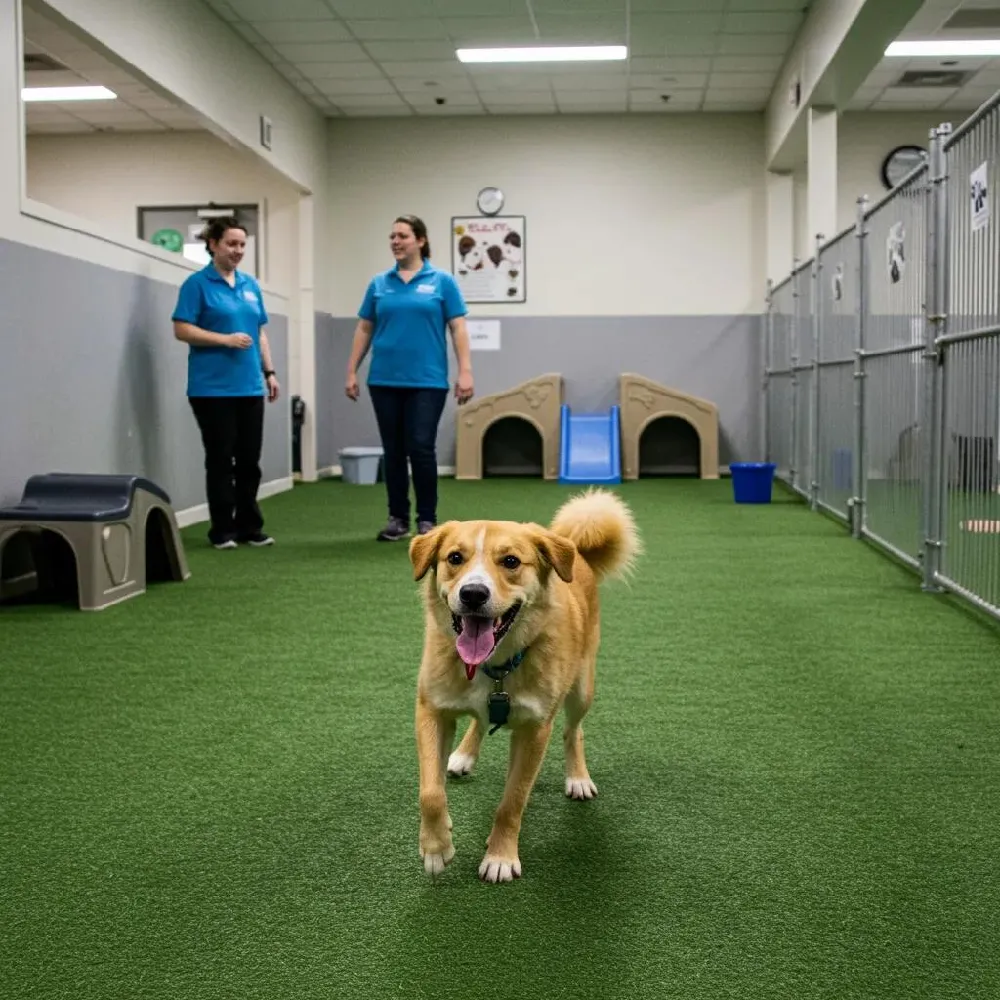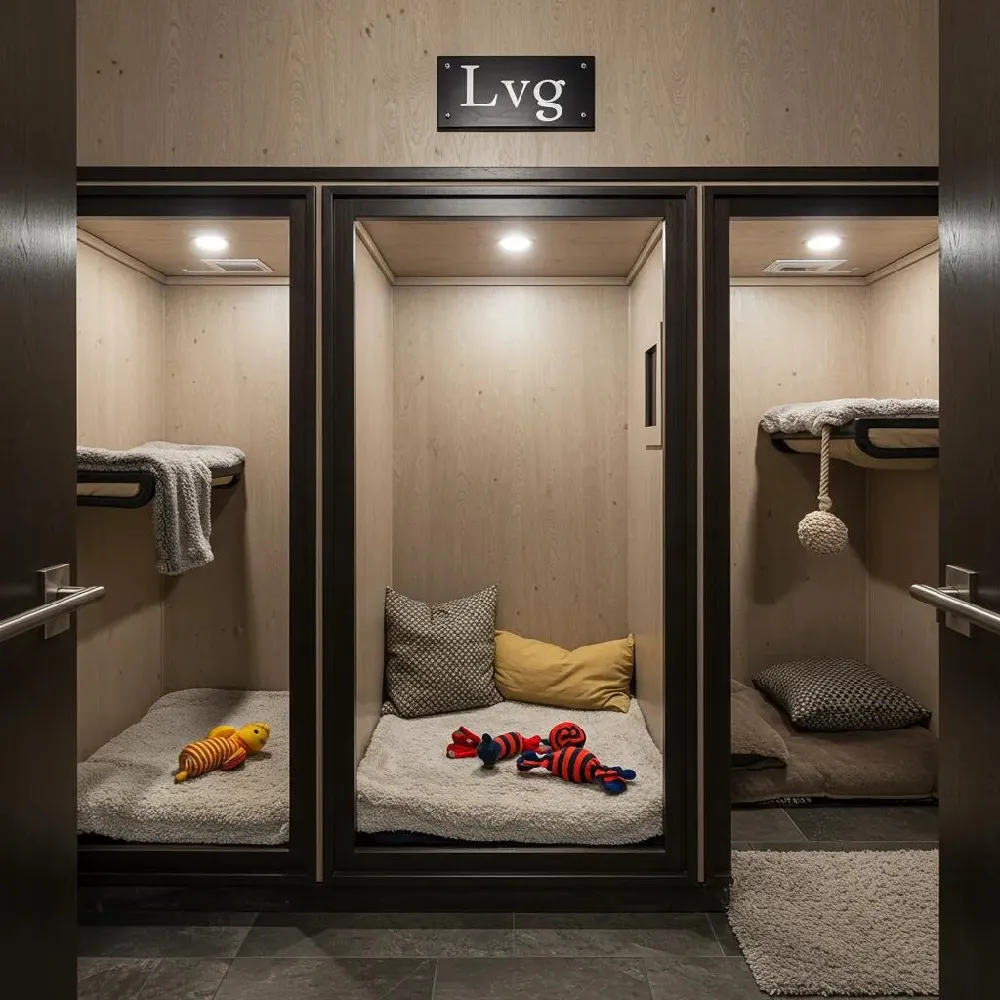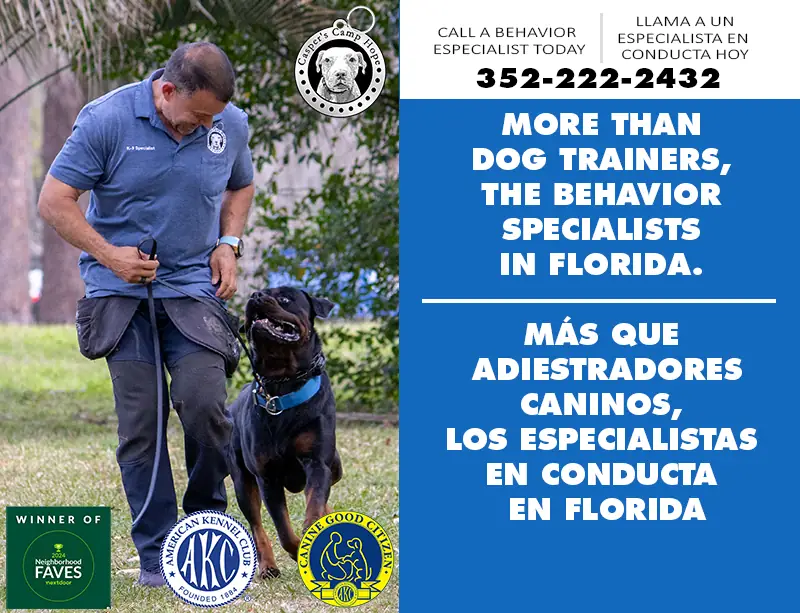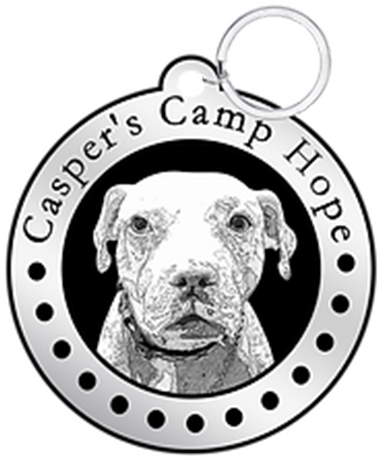
Selecting the right dog boarding service is key to ensuring your furry friend's comfort, safety, and your own peace of mind. This guide breaks down the main types of boarding, what influences costs, how to choose the best fit, considerations for special needs, packing essentials, and how Casper’s Camp Hope stands out. You'll learn to compare traditional kennels, luxury suites, in-home care, and veterinary boarding; understand pricing factors and how to save; evaluate safety, staff, and amenities; address anxious, senior, or reactive dogs; pack for your dog's stay; and see how Casper’s Camp Hope's unique offerings align with each category. By the end, you'll have a clear plan to pick the ideal boarding option for your dog's personality, health, and your budget.
What Kinds of Dog Boarding Services Are Available?
Dog boarding services offer various environments for your pet's accommodation, supervision, and fun while you're away. The main types include traditional kennels, upscale pet hotels, in-home pet sitters, and veterinary clinics providing medical care. Each option provides lodging, routine, and socialization, along with specific features and care plans designed for different dog personalities and needs.
| Boarding Type | Key Feature | Best For |
|---|---|---|
| Traditional Kennel | Shared runs and essential care | Social dogs and budget-conscious owners |
| Luxury Boarding | Private suites and premium comforts | Pets seeking top-tier comfort |
| In-Home Boarding | Home atmosphere and dedicated attention | Dogs who prefer familiar routines |
| Veterinary Boarding | Constant medical supervision | Dogs with health or medication needs |
These basic descriptions set the stage for a closer look at each boarding style and how they ensure safety, engagement, and personalized care for your dog's well-being.
What Exactly Is Traditional Kennel Boarding?
Traditional kennel boarding offers secure, climate-controlled spaces with scheduled playtime and feeding. This setup focuses on consistent care and supervised social interaction in designated play areas. Staff manage meals, exercise, and basic grooming according to set procedures, ensuring each dog gets regular attention and opportunities for healthy activity.
Traditional kennels encourage socialization and physical activity by grouping dogs with similar temperaments under staff supervision. Cleanliness is typically maintained through daily sanitation of enclosures, fresh bedding, and secure fencing. While amenities are straightforward, kennel boarding provides reliability, routine, and affordable lodging for dogs who enjoy group settings and moderate activity.
Research shows that providing enrichment and a structured feeding schedule significantly boosts a dog's well-being in boarding facilities.
Assessing Dog Boarding Welfare: Enrichment, Diet, and Environment
The abnormal behaviours, such as anxiety, were shown to be much higher when there was no enrichment in the facilities. In addition, the feeding schedule was linked to the presence of diarrhea. The shelter protocol was successful in recognizing welfare risks related to farm management and the environment. When these dangers are identified, there is a chance for improvement to be made, reducing the risks and enhancing the welfare of dog farms.
Assessment of the welfare of breeding and boarding dog farms in the greater Cairo region: application of the Farm Quality Protocol (FQP), BM Bawish, 2025
How Is Luxury Dog Boarding Different from Standard Kennels?

Luxury dog boarding takes comfort to the next level with private suites, premium bedding, and abundant enrichment activities. This style of boarding includes personalized play sessions, grooming, live webcams for owners, and gourmet meals prepared to specific dietary needs. Staff-to-dog ratios are higher than standard facilities, ensuring each dog receives focused attention and customized care.
| Amenity | Standard Kennel | Luxury Boarding |
|---|---|---|
| Sleeping Area | Shared kennel runs | Private, climate-controlled suites |
| Playtime | Group sessions | One-on-one or small group play |
| Meals | Standard kibble | Customized menus and feeding times |
| Supervision | Regular staff check-ins | Dedicated care teams |
Luxury boarding offers superior comfort and engagement while upholding essential safety and health standards, making it a top choice for owners seeking the best for their pets.
What Is In-Home Dog Boarding and When Is It a Good Fit?

In-home dog boarding means your dog stays in a residential setting, typically with a sitter in their home or a small, local host environment. This setup provides a familiar daily routine, companionship, and reduced stress for dogs who do best in a home-like atmosphere. Pet sitters manage meals, walks, and playtime according to the household's schedule, promoting a sense of normalcy and stability.
Dogs who experience high stress or separation anxiety often benefit greatly from in-home boarding, as it mimics their home environment and limits exposure to loud noises or large groups. Sitters can enforce house rules, offer undivided attention, and monitor individual behaviors closely. This option is ideal for pets who prefer quiet surroundings over kennel noise and offers a personalized alternative for owners who value a home-away-from-home feel.
What Does Veterinary Boarding Offer for Dogs with Health Concerns?
Veterinary boarding services combine lodging with professional medical oversight for dogs needing regular treatments, post-surgery care, or ongoing condition management. Veterinary clinics set aside specific areas with sterile bedding, controlled access, and on-site staff trained in administering medications, wound care, and monitoring vital signs.
Medical boarding enhances safety for dogs with conditions like diabetes, heart issues, or mobility challenges by ensuring precise management of insulin doses, fluid therapy, and physical therapy under veterinary guidance. Staff work closely with pet owners and veterinarians to execute treatment plans accurately, providing reassurance that any health emergencies will be handled promptly. This is the best choice for dogs whose health depends on continuous clinical attention.
How Much Does Dog Boarding Typically Cost?
Dog boarding costs vary based on the type of facility, location, services offered, time of year, and your dog's specific needs. As of October 2025, average nightly rates can range widely, from affordable kennel fees to premium luxury suites and specialized veterinary care. Understanding the factors that influence pricing helps you budget effectively and choose a service that fits both your finances and your dog's requirements.
What Factors Influence Dog Boarding Prices?
- Location and local demand affect base rates in city versus rural settings.
- The level of care and amenities, such as private suites, grooming, or training add-ons.
- Your dog's size and breed, which influence space needs and food consumption.
- Length of stay and seasonality, with extra charges for holidays and peak times.
- Specialized services, including medical supervision or behavioral support.
What Are the Average Costs for Different Boarding Types?
| Boarding Type | Average Nightly Rate | Typical Range |
|---|---|---|
| Traditional Kennel | $40–$60 | $40–$60 |
| Luxury Boarding | $60–$75 | $60–$75 |
| In-Home Boarding | $50–$70 | $50–$70 |
| Veterinary Boarding | $60–$75 | $60–$75 |
These figures are general estimates; actual prices depend on local market conditions, additional services, and the facility's reputation. Comparing published rates from different providers will help you find a service that fits your budget.
How Can Pet Owners Save Money on Dog Boarding?
- Book your dog's stay during off-peak seasons to avoid holiday surcharges.
- Opt for package deals that bundle services like grooming or training at a lower cost.
- Join loyalty or membership programs that offer reduced nightly rates.
- Provide your dog's usual food and bedding to skip extra charges for meals or supplies.
Using these tips can help you manage your budget effectively while ensuring your dog receives consistent, high-quality care without unnecessary expenses.
How Do You Choose the Best Dog Boarding Facility?
Selecting the right boarding facility involves carefully considering safety standards, staff expertise, available amenities, and the facility's reputation, all in relation to your dog’s specific temperament and health needs. A thorough selection process includes verifying credentials, touring the premises, understanding the services offered, and confirming clear policies. These steps help pet owners prioritize what truly matters for their dog's comfort and well-being.
What Safety and Health Standards Should You Look For?
- Current vaccination records that meet veterinary recommendations.
- Daily cleaning routines for all kennels, play areas, and common spaces.
- Secure fencing, locked gates, and controlled entry points to prevent escapes.
- Emergency action plans and staff trained in pet first-aid and CPR.
How Crucial Are Staff Qualifications and Experience?
- Certifications in animal behavior, first-aid, or pet care demonstrate strong handling skills.
- Experience with various breeds and temperaments ensures personalized care.
- Consistent staff-to-dog ratios guarantee prompt attention to any behavioral or health issues.
What Amenities and Services Enhance Your Dog’s Stay?
- Supervised play sessions, group activities, and off-leash exercise areas.
- Private suites, climate control, and sound-dampening features.
- On-site grooming, training sessions, and live webcams for owners.
- Customized feeding schedules and dietary accommodations.
How Can You Research and Visit Potential Boarding Facilities?
- Read reviews from other owners and third-party sites for real-world feedback.
- Request a tour to observe the facility's cleanliness, staff interactions, and how dogs are managed.
- Confirm any certifications, licenses, or affiliations with professional pet care organizations.
- Ask detailed questions about policies, emergency procedures, and daily routines.
This structured approach helps pet owners ensure a facility meets both objective standards and their dog’s individual needs.
Special Considerations for Anxious, Senior, or Reactive Dogs?
Dogs experiencing anxiety, age-related issues, or reactivity require specialized boarding approaches that prioritize their safety, comfort, and emotional state. Facilities need to adapt routines, staffing, and environments to accommodate these needs through specific protocols and modifications. Tailoring the services ensures that every dog receives the support necessary for a calm and secure boarding experience.
How Can Boarding Facilities Help Anxious Dogs?
- Offer quiet resting areas away from busy or noisy zones.
- Utilize staff trained to provide gentle reassurance and structured interaction.
- Maintain consistent feeding and walking schedules to minimize unpredictability.
These measures help dogs relax and build trust, reducing stress during their stay.
What Are the Best Boarding Options for Senior Dogs?
- Comfortable bedding, ramps, or low-entry suites to ease joint discomfort.
- Regular health checks, medication management, and gentle exercise routines.
- Limited group play, favoring one-on-one walks to prevent overexertion.
Combining comfort with medical attention helps maintain a senior dog's quality of life and ensures they remain safe and well-cared for.
How Are Reactive or Aggressive Dogs Boarded?
- Provide private or small group areas with visual barriers to reduce triggers.
- Schedule one-on-one staff supervision for positive reinforcement and controlled interactions.
- Implement safety measures such as options for muzzles and clear emergency response plans.
These strategies ensure safety while respecting each dog’s personal space and behavioral needs.
What Should You Pack for Your Dog's Boarding Stay?
Preparing for boarding involves gathering essential items, confirming health records, and getting your dog accustomed to routines before arrival. A thorough checklist ensures the facility has everything needed to continue your dog's care smoothly, reducing stress and making the transition into the boarding environment easier.
What Essential Items Should You Bring?
- Enough of your dog's regular food, plus any supplements.
- All prescribed medications with clear dosage instructions.
- Comfort items like favorite toys, blankets, or clothing.
- Up-to-date vaccination records and your veterinarian's contact information.
Providing these items allows staff to maintain consistent care routines without disruption.
How Should You Prepare Your Dog Before Boarding?
- Schedule a vet check-up to confirm health status and update vaccinations.
- Arrange trial visits to the facility so your dog can get familiar with the environment.
- Practice crate or suite time at home to build positive associations.
- Increase exercise sessions to help your dog expend energy and feel calmer.
This preparation helps build your dog's confidence and reduces separation anxiety during their stay.
What Are Common Facility Policies on Owner Supplies?
- All personal items must be clearly labeled with the owner's and pet's names.
- Limits may apply to the quantity of perishable or bulky items to manage storage space.
- Only pre-packaged food and bedding that meet sanitation standards are typically approved.
- Unused items will be returned promptly at check-out to prevent loss.
Following these policies helps ensure efficient handling of owner-provided items and maintains order within the facility.
How Does Casper’s Camp Hope Compare to Other Dog Boarding Services?
Casper’s Camp Hope excels in providing safety, enrichment, and personalized care across all boarding options, establishing itself as a premier provider in the area. This facility offers private suites, supervised socialization, and specialized care plans for dogs with unique needs, all while maintaining clear pricing and high health standards.
What Unique Amenities and Care Does Casper’s Camp Hope Offer?
- Private, climate-controlled suites equipped with orthopedic bedding.
- Supervised playgroups and individualized enrichment activities.
- On-site cameras for owner peace of mind and regular updates.
- Customized meal plans tailored to dietary preferences and restrictions.
These features provide enhanced comfort, stimulation, and transparency, aligning with the highest standards of luxury and professional pet care.
How Does Casper’s Camp Hope Care for Special Needs Dogs?
- Quiet suites with calming sound machines for anxious dogs.
- Senior care programs including daily health checks and gentle therapeutic walks.
- Secure, separate areas and one-on-one handling for reactive or aggressive dogs.
This specialized approach ensures every pet receives the exact environment and attention needed for a stress-free stay.
What Are the Booking and Contact Details for Casper’s Camp Hope?
To book a suite or arrange a facility tour, please contact the boarding office by phone during business hours or submit a request through our online form. Our team will confirm availability, discuss your dog’s profile, dietary needs, and behavioral history, and explain the check-in process. Booking in advance helps secure your preferred dates and suite choices.
What Are the Pros and Cons of Different Dog Boarding Options?
Comparing the advantages and disadvantages of each boarding type helps owners match their dog’s personality and needs with the most suitable services. Evaluating the strengths and weaknesses ensures an informed decision, maximizing your dog’s comfort, safety, and enjoyment while you're away.
What Are the Advantages and Disadvantages of Traditional Kennels?
- Pros:Affordable rates for standard stays.Structured opportunities for exercise and socialization.Established protocols for cleanliness and safety.
- Cons:Limited personalized attention.Basic amenities without private suites.Potential for stress due to group noise levels.
Traditional kennels are excellent for routine care and affordability, making them a good choice for dogs who are comfortable in group settings and with standard accommodations.
How Do Luxury Boarding Facilities Benefit Your Dog?
- Pros:Premium bedding, personalized play, and high-end dining options.Higher staff-to-dog ratios for more individualized attention.Enrichment activities like spa treatments and training sessions.
- Cons:Higher costs compared to standard kennels.Often requires booking well in advance, especially during busy periods.Some premium services might be unnecessary for less demanding dogs.
Luxury boarding provides maximum comfort and tailored care, ideal for pets whose owners prioritize top-tier experiences and amenities.
When Is In-Home Boarding the Best Choice?
- Pros:A home-like environment that can reduce separation anxiety.Constant companionship and adherence to familiar routines.Less exposure to common kennel stressors.
- Cons:Limited capacity can affect availability.Policies and quality can vary significantly between sitters.Less formal infrastructure for handling emergencies.
In-home boarding is perfect for dogs who thrive in domestic settings and for owners seeking a personalized, family-like approach.
What Are the Benefits and Limitations of Veterinary Boarding?
- Pros:Continuous medical supervision and on-site veterinary expertise.Precise medication administration and health monitoring.Sterile environments suitable for post-operative or chronic care.
- Cons:Higher nightly rates due to clinical services.Less focus on social play and general enrichment.Potential for stress associated with a clinical setting.
Veterinary boarding is the top choice for dogs needing medical attention, offering unparalleled peace of mind when health oversight is the primary concern.
Ultimately, your choice of boarding depends on your dog’s personality, health needs, and your budget. By matching service features to your pet’s specific requirements, you can ensure a safe, comfortable, and engaging stay.
Choosing the right dog boarding option gives you the confidence that your dog will receive attentive care, customized amenities, and a stress-free environment. Whether you prioritize affordability, luxury, a home-like atmosphere, or medical support, this guide clarifies the key differences and shows how Casper’s Camp Hope’s comprehensive services meet a wide range of canine needs. Consider your dog’s profile, visit potential facilities, and use the strategies outlined here to make a well-informed decision. Your dog’s well-being and happiness depend on selecting a boarding solution that perfectly suits their personality and health requirements.




